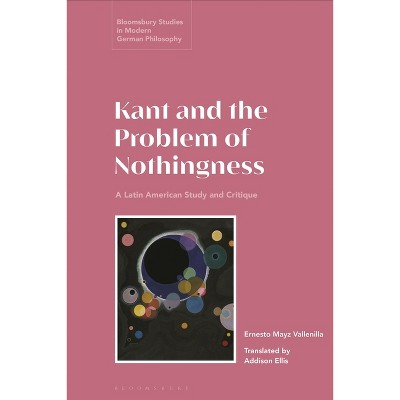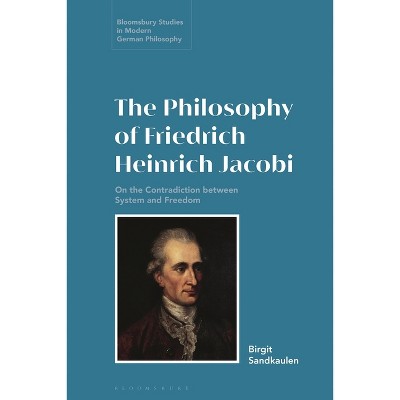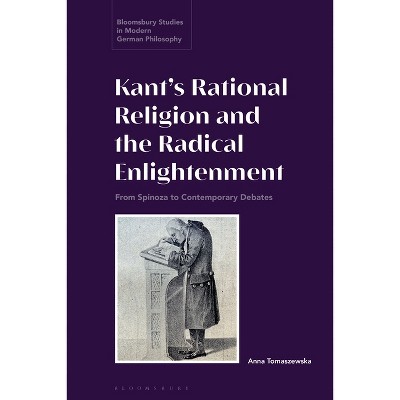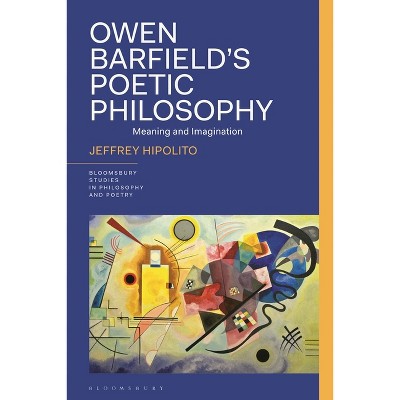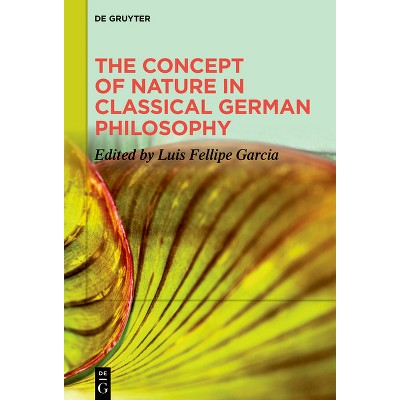Hope and the Kantian Legacy - (Bloomsbury Studies in Modern German Philosophy)

About this item
Highlights
- Hope is understood to be a significant part of human experience, including for motivating behaviour, promoting happiness, and justifying a conception of the self as having agency.
- About the Author: Katerina Mihaylova is Lecturer in Philosophy at MLU Halle-Wittenberg, Germany.
- 328 Pages
- Philosophy, History & Surveys
- Series Name: Bloomsbury Studies in Modern German Philosophy
Description
About the Book
"A history of the development of the concept of hope in German philosophy immediately after Kant"--Book Synopsis
Hope is understood to be a significant part of human experience, including for motivating behaviour, promoting happiness, and justifying a conception of the self as having agency. Yet substantial gaps remain regarding the development of the concept of hope in the history of philosophy. This collection addresses this gap by reconstructing and analysing a variety of approaches to hope in late 18th- and 19th-century German philosophy.
In 1781, Kant's idea of a "rational hope" shifted the terms of discussion about hope and its role for human self-understanding. In the 19th century, a wide-ranging debate over the meaning and function of hope emerged in response to his work. Drawing on expertise from a diverse group of contributors, this collection explores perspectives on hope from Kant, Fichte, Schelling, Schopenhauer, J. S. Beck, J. C. Hoffbauer, Wilhelm von Humboldt, Georg Friedrich Creuzer, Kierkegaard and others. Chapters consider different aspects of the concept of hope, including the rationality of hope, appropriate and inappropriate applications of hope and the function of hope in relation to religion and society. The result is a valuable collection covering a century of the role of hope in shaping cognitive attitudes and constructing social, political and moral communities. As an overview of philosophical approaches to hope during this period, including by philosophers who are seldom studied today, the collection constitutes a valuable resource for exploring the development of this important concept in post-Kantian German philosophy.Review Quotes
"Was darf ich hoffen? - What may I hope? This volume is an indispensable source for everyone interested in the enlightenment prehistory of Kant's third question, Kant's philosophy of hope itself, and especially its post-Kantian appropriation. The contributions are highly instructive, insightful, and thought-provoking." --Dietmar H. Heidemann, Professor of Philosophy, University of Luxembourg, Luxembourg
"This splendid volume of historical-philosophical reflections on hope is an indispensable first port of call for scholars deeply interested in the enduring Kantian legacy of its use." --Philosophy in Review "This rich and comprehensive collection of papers has now radically changed the landscape of the metaphysical discussion of hope in studies of German philosophy." --Symphilosophie: International Journal of Philosophical Romanticism "This volume will greatly enrich systematic discussions of hope, as well as historical research on hope, moral and political progress, and the relationship between religion and ethics in the nineteenth century ... [T]his is an outstanding collection of texts on hope that is sure to achieve its aim of stimulating "research into philosophy on hope in the period after Kant"." --Kant-StudienAbout the Author
Katerina Mihaylova is Lecturer in Philosophy at MLU Halle-Wittenberg, Germany.
Anna Ezekiel is Honorary Fellow at the University of York, UK, and Visiting Faculty at Parami University, Myanmar.Shipping details
Return details
Trending Poetry






